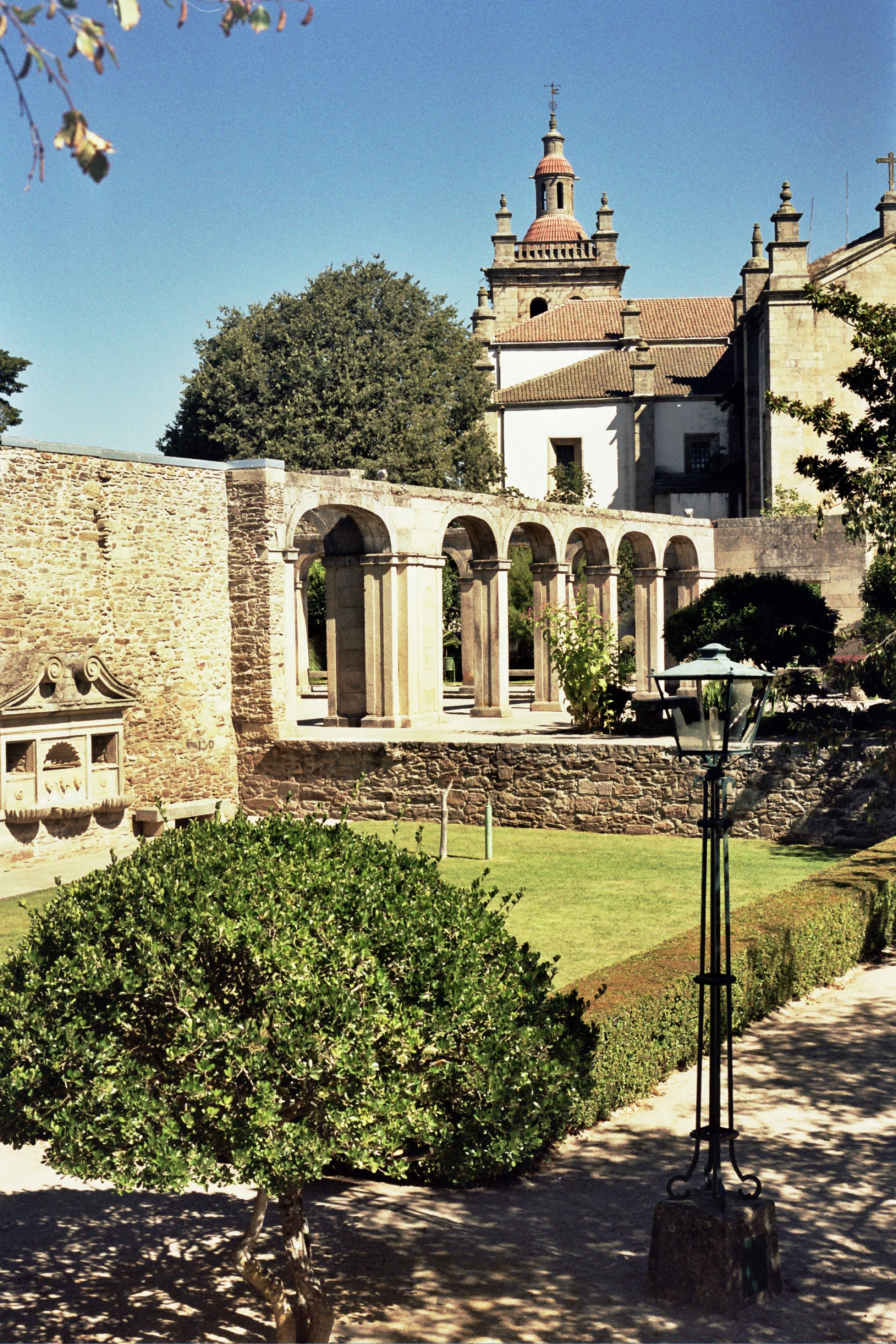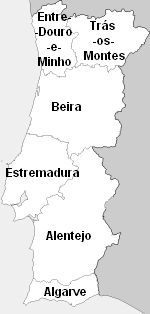|
Miranda Do Douro Municipality
Miranda do Douro () or Miranda de l Douro in Mirandese () is a city and a municipality in the district of Bragança, northeastern Portugal. The population in 2011 was 7,482, in an area of 487.18 km². The town proper had a population of 1,960 in 2001. Referred to as the ''"Cidade Museu"'' of the Trás-os-Montes region, it is located 86 kilometres from Bragança, preserving many of its medieval and Renaissance-era traditions and architecture. It has a language of its own, Mirandese, which enjoys official status in Portugal, in addition to cultural and historical discontinuity with the rest of the Portuguese state. The town is located on the border with Spain, with the Douro River separating the two countries. The nearest town in Spain is Zamora. The present mayor is Artur Manuel Rodrigues Nunes (Socialist). The municipal holiday is on 10 July. History The origin of Miranda do Douro as a populated place is still discussed by historians, but archeologist discoveries give ev ... [...More Info...] [...Related Items...] OR: [Wikipedia] [Google] [Baidu] |
Norte Region, Portugal
The North Region ( pt, Região do Norte ) or Northern Portugal is the most populous region in Portugal, ahead of Lisbon Region, Lisbon, and the third most extensive by area. The region has 3,576,205 inhabitants according to the 2017 census, and its area is with a density of 173 inhabitants per square kilometre. It is one of five Regions of Portugal, regions of Mainland Portugal (Nomenclature of Territorial Units for Statistics, NUTS II subdivisions). Its main population center is the urban area of Porto, with about one million inhabitants; it includes a larger political metropolitan region with 1.8 million, and an urban-metropolitan agglomeration with 2.99 million inhabitants, including Porto and neighboring cities, such as Braga, Guimarães and Póvoa de Varzim. The Commission of Regional Coordination of the North (CCDR-N) is the agency that coordinates environmental policies, land-use planning, cities and the overall development of this region, supporting local governments and ass ... [...More Info...] [...Related Items...] OR: [Wikipedia] [Google] [Baidu] |
Denis Of Portugal
Denis (, ; 9 October 1261 – 7 January 1325 in Santarém), called the Farmer King (''Rei Lavrador'') and the Poet King (''Rei Poeta''), was King of Portugal. The eldest son of Afonso III of Portugal by his second wife, Beatrice of Castile, and grandson of Afonso II of Portugal, Denis succeeded his father in 1279. His marriage to Elizabeth of Aragon, who was later canonised as a saint of the Roman Catholic Church, was arranged in 1281 when she was 10 years old. Denis ruled Portugal for over 46 years. He worked to reorganise his country's economy and gave an impetus to Portuguese agriculture. He ordered the planting of a large pine forest (that still exists today) near Leiria to prevent the soil degradation that threatened the region and to serve as a source of raw materials for the construction of the royal ships. He was also known for his poetry, which constitutes an important contribution to the development of Portuguese as a literary language. Reign In 1290, Denis began to ... [...More Info...] [...Related Items...] OR: [Wikipedia] [Google] [Baidu] |
Parque Urbano Do Rio Fresno - Miranda Do Douro - Portugal (4324877456) (cropped)
*
*
{{dab, surname ...
Parque is the Galician, Portuguese and Spanish word for "park", and may refer to: * Parque (TransMilenio), a metro station in Bogotá, Colombia * Parque (Lisbon Metro), in Portugal * Parque (Santurce), a subbarrio in San Juan, Puerto Rico * Jim Parque, a baseball player See also * Parquetry, a type of flooring * Park (other) A park is an area of land with a recreational or other specific purpose. Park or Parks may also refer to: Places United Kingdom * Park (Reading ward), an electoral ward of the Borough of Reading, Berkshire, England * Park (Sefton ward), an el ... [...More Info...] [...Related Items...] OR: [Wikipedia] [Google] [Baidu] |
Bragança Municipality
Bragança may refer to: People *Jaime Celestino Dias Bragança, a Portuguese footballer Politics and History *House of Bragança - A Portuguese Royal House *Duke of Bragança - A Portuguese noble, and later royal, title Places Brazil * Bragança, Pará, a municipality in the State of Pará * Bragança Paulista, São Paulo, a municipality in the State of São Paulo Portugal * Bragança, Portugal, a city and municipality in the north-eastern district of Bragança * Bragança District Bragança District ( pt, Distrito de Bragança ; mwl, Çtrito de Bergáncia) is a traditional political division of Portugal, in the northeast corner bordering on Spain ( Castile and Leon and Galicia), covering 7.4% of the nation's continental l ..., a historical district in the Norte region of Portugal Sports * G.D. Bragança, association football club based in Bragança Municipality See also * Braganza (other) {{DEFAULTSORT:Braganca ... [...More Info...] [...Related Items...] OR: [Wikipedia] [Google] [Baidu] |
Friar
A friar is a member of one of the mendicant orders founded in the twelfth or thirteenth century; the term distinguishes the mendicants' itinerant apostolic character, exercised broadly under the jurisdiction of a superior general, from the older monastic orders' allegiance to a single monastery formalized by their vow of stability. A friar may be in holy orders or a Brother (Christian), brother. The most significant orders of friars are the Dominican Order, Dominicans, Franciscans, Augustinians, and Carmelites. Definition Friars are different from monks in that they are called to live the evangelical counsels (vows of poverty, chastity, and obedience) in service to society, rather than through cloistered asceticism and devotion. Whereas monks live in a self-sufficient community, friars work among laypeople and are supported by donations or other charitable support. Monks or nuns make their vows and commit to a particular community in a particular place. Friars commit to a comm ... [...More Info...] [...Related Items...] OR: [Wikipedia] [Google] [Baidu] |
Charles III Of Spain
it, Carlo Sebastiano di Borbone e Farnese , house = Bourbon-Anjou , father = Philip V of Spain , mother = Elisabeth Farnese , birth_date = 20 January 1716 , birth_place = Royal Alcazar of Madrid, Spain , death_date = , death_place = Royal Palace of Madrid, Spain , place of burial= El Escorial , religion = Roman Catholicism , signature = Autograph Charles III of Spain.svg Charles III (born Charles Sebastian; es, Carlos Sebastián; 20 January 1716 – 14 December 1788) was King of Spain (1759–1788). He also was Duke of Parma and Piacenza, as Charles I (1731–1735); King of Naples, as Charles VII, and King of Sicily, as Charles V (1734–1759). He was the fifth son of Philip V of Spain, and the eldest son of Philip's second wife, Elisabeth Farnese. A proponent of enlightened absolutism and regalism, he succeeded to the Spanish throne on 10 August 1759, upon the death of his childless half-brother Ferdinand VI. In 1731, t ... [...More Info...] [...Related Items...] OR: [Wikipedia] [Google] [Baidu] |
Seven Years' War
The Seven Years' War (1756–1763) was a global conflict that involved most of the European Great Powers, and was fought primarily in Europe, the Americas, and Asia-Pacific. Other concurrent conflicts include the French and Indian War (1754–1763), the Carnatic Wars and the Anglo-Spanish War (1762–1763). The opposing alliances were led by Great Britain and France respectively, both seeking to establish global pre-eminence at the expense of the other. Along with Spain, France fought Britain both in Europe and overseas with land-based armies and naval forces, while Britain's ally Prussia sought territorial expansion in Europe and consolidation of its power. Long-standing colonial rivalries pitting Britain against France and Spain in North America and the West Indies were fought on a grand scale with consequential results. Prussia sought greater influence in the German states, while Austria wanted to regain Silesia, captured by Prussia in the previous war, and to contain Pruss ... [...More Info...] [...Related Items...] OR: [Wikipedia] [Google] [Baidu] |
Diocese
In Ecclesiastical polity, church governance, a diocese or bishopric is the ecclesiastical district under the jurisdiction of a bishop. History In the later organization of the Roman Empire, the increasingly subdivided Roman province, provinces were administratively associated in a larger unit, the Roman diocese, diocese (Latin ''dioecesis'', from the Greek language, Greek term διοίκησις, meaning "administration"). Christianity was given legal status in 313 with the Edict of Milan. Churches began to organize themselves into Roman diocese, dioceses based on the Roman diocese, civil dioceses, not on the larger regional imperial districts. These dioceses were often smaller than the Roman province, provinces. Christianity was declared the Empire's State church of the Roman Empire, official religion by Theodosius I in 380. Constantine the Great, Constantine I in 318 gave litigants the right to have court cases transferred from the civil courts to the bishops. This situ ... [...More Info...] [...Related Items...] OR: [Wikipedia] [Google] [Baidu] |
John III Of Portugal
John III ( pt, João III ; 7 June 1502 – 11 June 1557), nicknamed The Pious (Portuguese: ''o Piedoso''), was the King of Portugal and the Algarves from 1521 until his death in 1557. He was the son of King Manuel I and Maria of Aragon, the third daughter of King Ferdinand II of Aragon and Queen Isabella I of Castile. John succeeded his father in 1521 at the age of nineteen. During his rule Portuguese possessions were extended in Asia and in the New World through the Portuguese colonization of Brazil. John III's policy of reinforcing Portugal's bases in India (such as Goa) secured Portugal's monopoly over the spice trade of cloves and nutmeg from the Maluku Islands. On the eve of his death in 1557, the Portuguese empire had a global dimension and spanned almost . During his reign, the Portuguese became the first Europeans to make contact with Japan (during the Muromachi period). He abandoned the Muslim territories in North Africa in favor of the trade with India and investme ... [...More Info...] [...Related Items...] OR: [Wikipedia] [Google] [Baidu] |
John I Of Portugal
John I ( pt, João �uˈɐ̃w̃ 11 April 1357 – 14 August 1433), also called John of Aviz, was King of Portugal from 1385 until his death in 1433. He is recognized chiefly for his role in Portugal's victory in a succession war with Castile, preserving his country's independence and establishing the Aviz (or Joanine) dynasty on the Portuguese throne. His long reign of 48 years, the most extensive of all Portuguese monarchs, saw the beginning of Portugal's overseas expansion. John's well-remembered reign in his country earned him the epithet of Fond Memory (''de Boa Memória''); he was also referred to as "the Good" (''o Bom''), sometimes "the Great" (''o Grande''), and more rarely, especially in Spain, as "the Bastard" (''Bastardo''). Early life John was born in Lisbon as the natural son of King Peter I of Portugal by a woman named Teresa, who, according to the royal chronicler Fernão Lopes in the Chronicle of the King D. Pedro I, was a noble Galician. In the 18th c ... [...More Info...] [...Related Items...] OR: [Wikipedia] [Google] [Baidu] |
Trás-os-Montes Province
Trás-os-Montes Province () is one of the medieval provinces of Portugal. The northern part is covered by Terras de Trás-os-Montes and Alto Tâmega, the southern by Douro Subregion. See also * Trás-os-Montes (region) * Trás-os-Montes e Alto Douro Province Trás-os-Montes e Alto Douro () is a historical province of Portugal located in the northeastern corner of the country. Vast plateaus, river valleys, mountains, and castles abound in Trás os Montes e Alto Douro. History A first attempt to regis ... {{DEFAULTSORT:Tras-Os-Montes Province Former provinces of Portugal ... [...More Info...] [...Related Items...] OR: [Wikipedia] [Google] [Baidu] |





